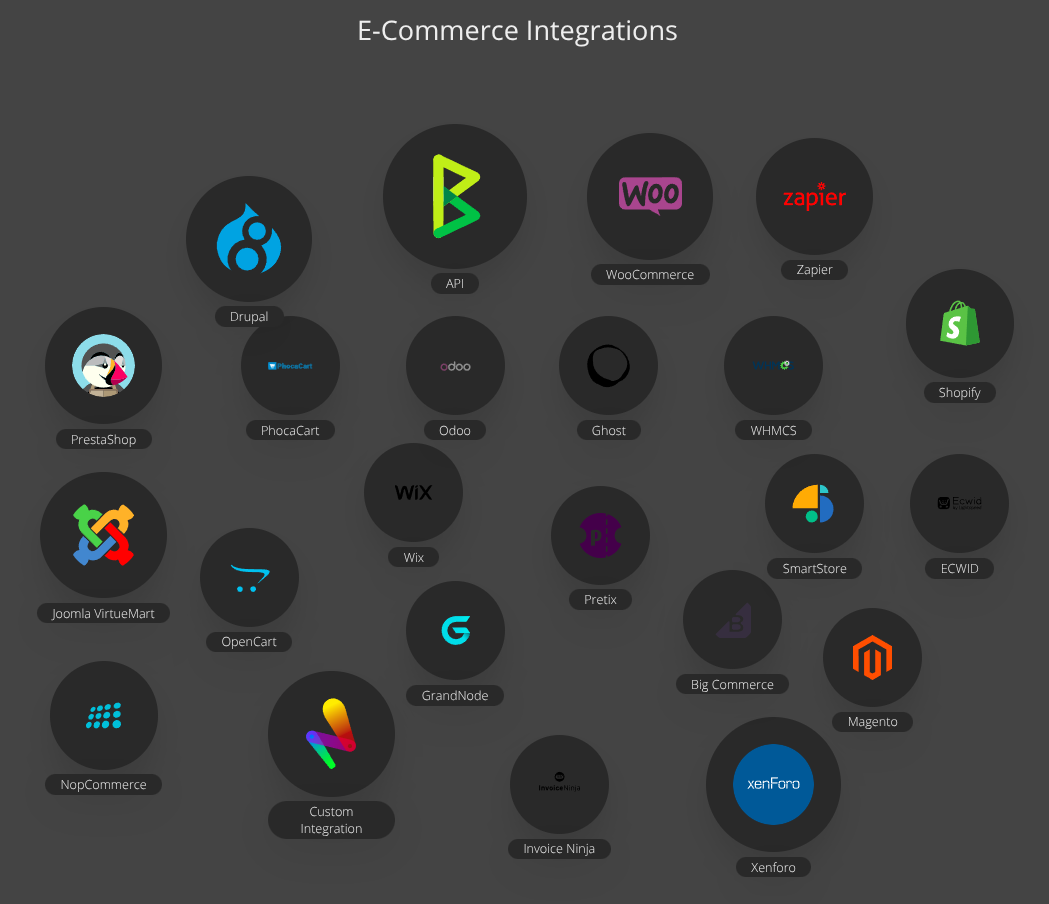[#title_feedzy_rewrite]
![[#title_feedzy_rewrite]](https://postcryptocoins.com/wp-content/uploads/2025/06/Leonardo_Phoenix_10_young_modern_wizard_male_futuristic_clothi_0-wSk5Mb.webp)
Bitcoin Magazine
BTCPay Server: The Backbone of Bitcoin Commerce, 2025
With plugins for Boltz swaps and WooCommerce, BTCPay Server’s open-source platform supports merchants globally, no middleman required.
This post BTCPay Server: The Backbone of Bitcoin Commerce, 2025 first appeared on Bitcoin Magazine and is written by Juan Galt.
Bitcoin Magazine

BTCPay Server: The Backbone of Bitcoin Commerce, 2025
The genesis story of BTCPay Server is without a doubt one of the most iconic moments in Bitcoin history. A single developer, feeling betrayed by Bitpay, a bitcoin payments processing giant and its attempt at co-opting Bitcoin, declared economic war on the company in a tweet that will never be forgotten by the Bitcoin industry; “This is lies, my trust in you is broken, I will make you obsolete.”
Nicolas Dorier went on to create one of the most widely distributed open source projects in the Bitcoin industry and perhaps the invoicing and payments industry as a whole: BTCPay Server. Much has been written about the context and motivation behind Dorier’s founding of the project — there’s even a documentary about it.
What’s seldom highlighted is how ambitious a project BTCPay Server is, how feature-rich it has become and how deeply integrated it is with the industry. In fact, it is easy to forget that as an open source project with no centralized database of users, BTCPay Server is both a massive privacy upgrade for its users and represents the removal of a fundamental middleman processing payments. As a result, Dorier and the BTCPay Server community have created a public goods infrastructure — a kind of commons of payment processing — that provides users real value by saving them fees, and providing them a much smoother user experience given that no personal information is required for the payments to flow.
Humbly described on their website as “a self-hosted, open-source cryptocurrency payment processor,” BTCPay Server is an invoicing and accounting system for merchants, a fully featured Bitcoin wallet with full node capabilities; on-chain, Lightning Network and Liquid Network support; hardware wallet support; and a modular plugin system. The plugins in particular extend the core of BTCPay Server into a wide range of niches. They also integrate into e-commerce giants such as WooCommerce and Shopify.

It is somewhat difficult to gauge the success and scope of BTCPay Server. Because it is a self-hosted platform that does not capture customer data of any kind — it has no central cloud service as other payment processors do — our view into its success is somewhat limited.
However, we can get a sense of their reach by proxy of other metrics, for example, their primary software repository has had over 170 open source contributors, with 8,393 commits at the time of writing.
As of 2025, BTCPay Server has had one million downloads directly from its GitHub repository, which does not account for cloud providers of the software as hosted by companies like Voltage or Lunanode. It is also often the case that one instance of BTCPay Server serves multiple merchants and hosts multiple stores simultaneously.
R0ckstardev, one of the top contributors to the project, told Bitcoin Magazine that there could be hundreds of thousands of instances of BTCPay Server running throughout the world. Tobe Chileta, a contributor to the project, also told Bitcoin Magazine that “of the seven continents of the world, I think it is only Antarctica that I haven’t seen someone run BTCPay server.” He added, “I’m certain we have merchants running in Asia, Africa, North America, South America, Europe and Australia.”
Companies
BTCPay Server’s website business directory, while far from exhaustive, covers hundreds of merchants onboarded. The BTCPay Server community also does regular case studies of user cohorts or major merchants that use the software, documenting their integration and story in their case studies page. It gives fantastic insights into a variety of Bitcoin communities throughout the world and includes useful guides on how to replicate various results and implementations.
Namecheap, for example, boasted over 70 million dollars’ of bitcoin volume since their integration of BTCPay Server. From May 18, 2020, to October 2024 they clocked in 1.1m transactions in total with over 500,000 users paying in bitcoin, resulting in over $73 million in revenue through payments made from over 200 countries.
BTC Inc, the parent company of the biggest Bitcoin conference in the world, has for years been setting up BTCPay Server for its merchants, and even has a one-hour behind-the-scenes documentary on the complexities of setting up dozens of merchants at a conference (filmed during the Nashville 2024 Bitcoin conference). The event saw over 25,000 attendees, including the 47th president of the U.S., Donald J. Trump.
In this most recent Bitcoin 2025 conference in Las Vegas, BTCPay Server was used to process a new world record of Bitcoin transactions within an eight-hour period, with 4,187 transactions in total. The initial target was 4,000 transactions and was set by the Guinness World Records organization.
Integrations and Plugins
One of the most important dimensions of BTCPay Server is its plugin system. Given the wide variety of ways companies can interact with Bitcoin, the developer community has optimized the BTCPay Server code toward a plugin model that developers can build for with a well-documented set of GitHub repos and an API. Today there are over 30 plugins available on BTCPay Server. Here are some of the greatest hits:
Boltz Swap Exchange Plugin
Boltz is an atomic swap exchange focused on the various Bitcoin layers such as Liquid, Lightning, Rootstock and of course Bitcoin on-chain. It has gained prominence of late as a very simple solution to the channel rebalancing challenges Lightning wallets face. R0ckstardev told Bitcoin Magazine that he is particularly impressed with the Boltz integration, and even tweeted as much earlier this year.
Branded as a noncustodial Bitcoin Bridge, Boltz allows users to swap between different Bitcoin layers while retaining maximum control of their funds, using atomic swap technology that eliminates third-party trust across crypto-native payments. For example, you can use Boltz via BTCPay Server to make a Lightning payment, where the sats are initially held at rest in a Liquid network wallet and are pulled from that balance by the Boltz plugin. The L-BTC is atomically swapped for sats on the Lightning Network via the Boltz exchange and the satoshis flow to the end recipient. This whole process is effectively noncustodial.
This is the same type of “lightning service provider” style infrastructure with which Breez wallet recently announced integration. While it is not quite as cheap as a user-operated Lightning node can be in the best of cases, it is far easier to set up and run — only demanding a few clicks on the BTCPay Server interface. As far as BTCPay Server is concerned, this Boltz plugin represents a full Lightning node, integrating natively with the invoicing and accounting layers.
This tech also scales quite well: One BTCPay Server admin can support many different merchants and not even have to run or manage a standard Lightning node, since the plugin supports automated liquidity management.
The Bolt Cards Plugin
The Bolt card, a company and product created by the Coincenter exchange, has come into prominence recently thanks to its unique graphics and the laser-eyes that light up on tap-to-pay. They, too, have a BTCPay Server plugin that lets users manage and connect these cool NFC cards to their wallets via the plugin.
Bolt cards are NFC tap-to-pay devices that function like debit cards. Users can make bitcoin payments in person with the same tap-to-pay experience delivered by Visa and Mastercard, though with far more privacy since bankcards transmit your name and full card details with every payment whereas Lightning users have the potential to pay directly from their own Lightning nodes and without personally identifying information required for payments to process.
The Bolt card plugin in BTCPay Server is fairly straightforward, allowing users to set up, reset and check the balance of their Bolt cards, allowing users to spend directly from their BTCPay Server-integrated Lightning nodes.
Ghost blogging suite
Ghost, a popular open source blogging tech stack has recently integrated with BTCPay via a plugin, letting users accept donations and paywall content. The integration covers all forms of media formats and supports a tired membership for exclusive content, akin to Patreon but with bitcoin.
Nostr Support
Nostr is also integrated as a plugin, which unlocks interactivity with that whole ecosystem. The plugin supports user account verification as an alternative to managing a user database and can support zaps and Lightning payments via Nostr Wallet Connect.
Satoshi Tickets
Satoshi Tickets is an event ticket management system, an example of the depth of tooling supported by BTCPay Server plugins and the potential it unlocks. The ticket system is of course fully integrated with the invoicing and payments accounting layer, letting event businesses accept bitcoin and fiat payments with the help of other plugins and API.
Prism
BTCPay Server has found a reliable niche in Bitcoin conferences, where merchants are often encouraged to accept bitcoin as payment and are willing to be onboarded to new technologies. The feedback resulting from many such tests is that merchants need dollar stability to at least cover their costs, and this is where the Prism plugin comes in. Prism allows the splitting of sats flow to different pockets of values, allowing merchants to auto convert, say, 80% of their revenue to USDT via an exchange like Sideshift, keeping the remaining 20% in bitcoin.
This kind of technology is essential for cashflow-heavy businesses that have very predictable expenses and can’t stomach the volatility risk. The profits however can easily stay in BTC if they so choose.
Cash Plugin
There’s even a Cash plugin that supports cash payments using BTCPay Server as the invoicing suite. It supports a wide range of fiat currencies, a key feature for brick-and-mortar businesses that do not serve the Bitcoin market primarily.
Podserver
Even podcasters who represent a significant and essential portion of the Bitcoin community can set up self-host podcasting 2.0 streaming via BTCPay Server with a dedicated plugin.
Supporters
BTCPay Server is supported by various philanthropic and for-profit organizations through grants and donations such as Opensats, the Human Rights Foundation, Spiral and Tether, among others. Individual contributors are sponsored at times to do specific or general work, while a BTCPay Server nonprofit foundation has also been set up to handle traditional donations and distribute them to the contributors on a case-by-case basis.

This post BTCPay Server: The Backbone of Bitcoin Commerce, 2025 first appeared on Bitcoin Magazine and is written by Juan Galt.

